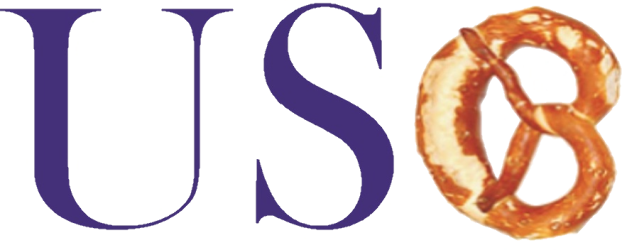Is the U.N.’s World Day Against Trafficking in Persons tuesday. After almost 2 full decades of worldwide dedication to end modern slavery, a very important factor is clear: States are simply just not doing sufficient. It’s estimated that you will find 40.3 million victims of contemporary slavery, including intercourse trafficking and forced wedding. Eighty percent are victims of forced labor — an issue that is badly grasped by the public that is general. Twenty-five per cent of trafficking victims worldwide are children.
Peoples trafficking is an epidemic in and of itself. Nonetheless it’s additionally an indication of other deeply-rooted, international challenges — the refugee crisis, civil conflict, poverty, and much more. This really is a generally speaking accepted truth. But there’s another real cause this is certainly hardly ever, when, discussed: authoritarianism.
Every year, the U.S. State Department releases a trafficking report that categorizes nations based on the power of the efforts that are anti-trafficking. You will find four categories: Tier 1, Tier 2, Tier 2 Watchlist, and Tier 3. For a nation become classified as Tier 1, its federal federal government need to have gone far above in prosecuting traffickers, protecting victims, preventing trafficking that is new, and partnering with civil culture to create brand new solutions. In this year’s report, posted in 94% of Tier 1 countries have democratic governments june. Meanwhile, simply 6% of rated authoritarian states make it into that category. Tier list that is 3’s 90% authoritarian and 10% democratic.
The correlation is obvious, and, due to the fact Human Rights Foundation records, continues from 12 months to year. Yet few anti-trafficking specialists and advocates talk about the relationship between poor anti-trafficking policies and authoritarianism. This year’s report that is trafficking governments to “look inwards” to handle trafficking in their very own edges rendering it distinct from previous reports. Doing this requires transparency, accountability, the guideline of legislation, and free and discourse that is public uncommon resources under authoritarian regimes. Yet the terms “democracy” and “authoritarianism” should meet danish girls never be also mentioned into the State Department’s report. And also this oversight is certainly not brand new: year in year out, the report does not talk about exactly how authoritarianism plays a part in individual trafficking.
Simply Simply Take Thailand, for instance. This year’s report that is trafficking Thailand in Tier 2, among authoritarian states like Zimbabwe and Tajikistan, in addition to democracies like Germany and Denmark. But even while Thailand has “increased efforts” in anti-trafficking, its army junta has increased repression also, shutting down opposition media outlets, expanding censorship, and prosecuting a huge selection of dissidents.
In an environment where advocates are ruthlessly silenced, anti-trafficking reforms have already been implemented top down, without assessment through the community. Once the guideline of legislation weakens, the nation has convicted less traffickers and launched a number that is paltry of. Sufficient reason for current mass arrests of protesters and ongoing unlawful studies against activists, it is not likely that victims or their advocates feel in a position to push when it comes to implementation that is full of.
The community that is international had the opportunity to pressure Thailand to handle trafficking. The Thai government increased its efforts to combat labor trafficking, even creating a new court dedicated to addressing human trafficking for example, after the Guardian’s damning 2014 investigation about slavery in the fishing industry. But without much much much deeper, institutional modification, the results had been short-lived.
Lasting modification would need upending the Thai court system entirely to re-establish guideline of legislation; engaging civil society and victims of trafficking right to study from their experiences; and reforming the electoral system so federal federal government representatives are undoubtedly accountable to voters. When you look at the lack of this systemic reform, slavery is still rampant within the Thai fishing industry, and present government-run investigations into trafficking are no more than a “theatrical workout for international consumption,” according to Human Rights Watch.
It is this really a shock? Why would we expect a nation ranked “Not Free” by Freedom home during the last 5 years to accomplish appropriate by its residents?
As advocates, we usually discuss international challenges just as if these are generally unconnected to political systems. The U.N.’s Sustainable Development Goals, as an example, make no mention of democracy or freedoms that are basic free phrase. Yet authoritarianism both factors and exacerbates nearly all worldwide development crises. In accordance with the Human Rights Foundation’s research, 25 regarding the 30 poorest nations are ruled by authoritarian regimes; 96percent regarding the world’s refugees in 2017 originated in nations with authoritarian regimes; as well as the 20 nations on the planet using the worst access to fundamental normal water, 18 are ruled by authoritarian regimes. Marketing democracy can pave the real method to alter.
In the 2019 Oslo Freedom Forum, previous U.N. individual rights chief Zeid Ra’ad al Hussein urged the peoples legal rights community to your workplace together to defend all liberties and freedoms equally — not merely since the liberties to free phrase, installation, and association are key, but because collaborating makes us stronger. When we don’t unite, whenever we don’t recognize the bond between dilemmas like trafficking and authoritarianism, he says, “we will not have the thickness inside the motion, the power inside the motion, to conquer the risks that you can get before us.”
Each year on this time we mention just just what we’re doing to finish slavery that is modern. But plainly, we’re not doing sufficient. We need to work together to empower its victims by advocating fundamental rights if we really want to end human trafficking. Democracy must certanly be component associated with the discussion.

